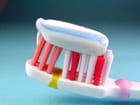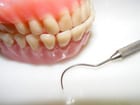 One of the things we try to do on a daily basis is to look after our health. Now that isn’t always the easiest thing to do in a busy, vibrant city like Leeds and it is very easy to let up on our overall and dental health.
One of the things we try to do on a daily basis is to look after our health. Now that isn’t always the easiest thing to do in a busy, vibrant city like Leeds and it is very easy to let up on our overall and dental health.
However a balanced, healthy diet will give our immune system the chance to keep all of our body in fine fettle and that works for our mouth as well- a healthy body also means healthy teeth and gums. This will help the saliva levels to be high and fight of bacteria.
Bad habits like smoking and drinking can break down the saliva, so it is imperative that we maintain an impressive daily oral health regime to continue the battle against plaque and avoid further problems from tooth decay and gum disease.
It may sound silly, but it is vital that we choose the right brush and change it regularly, choose the right toothpaste and ensure we floss as often as we can during the day to remove any food caught up between the teeth and around the gums. This can also be followed by a good mouth-wash, with plenty of products available to help win the war on plaque.
We also have the luxury of regular visits to the dentist for a thorough check-up, and if need be a cleaning session with a hygienist, to ensure that our teeth are given the best overhaul and cleaned at least twice a year.
Maintaining good oral hygiene and eating the best foods for our teeth and gums can ensure a life time of beautiful, healthy smiles.















